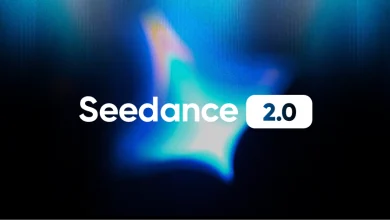
Outsourcing AI development is growing fast. Companies across industries now turn to external teams to build smarter tech solutions. This shift can help you save money, find skilled experts, and speed up innovation. But choosing the right partner isn’t easy. Picking the wrong one can delay your project or lead to wasted resources. That’s why it’s crucial to understand what makes a good AI outsourcing partner.
Understanding Your AI Outsourcing Needs
Assessing Your Business Goals and AI Requirements
Start by clearly defining what you want AI to do for your business. Is it to automate tasks? Improve customer service? Get better insights from data? Knowing your goals helps you choose a partner that can meet those needs. Also, make sure your AI plans tie into your overall business strategy. If your goal is to grow sales, your AI efforts should support that aim.
Determining Project Scope and Budget
Be specific about what you need. Are you testing a new idea with a proof of concept? Or do you need a fully operational AI system? Projects can range from small pilots to large-scale deployments. Set a clear budget based on how complex your AI project is. Don’t forget to include extra costs for ongoing support or updates. Realistic timelines are just as important as budget.
Identifying In-House Capabilities
Take stock of your internal skills. Do you have data scientists or machine learning experts? If not, that’s where your outsourcing partner can help. Decide if you want to outsource the entire project or just parts of it. For simple tasks like data prep, in-house work might be enough. But for complex models, bringing in external expertise makes sense.
Key Criteria for Selecting an AI Outsourcing Partner
Technical Expertise and Domain Knowledge
Look for a team that has real experience in specific AI tech such as machine learning, natural language processing (NLP), or computer vision. Ask if they’ve worked in your industry, like healthcare or finance. Their familiarity with industry standards can speed up delivery and improve results.
Reputation and Track Record
A reputable partner will have solid case studies, testimonials, and project examples. Check reviews and ask for references. Find out how they handled past projects—did they meet deadlines? Did their solutions work well in real life? Industry recognition also signals a trustworthy team.
Team Composition and Cultural Fit
Assess the team’s makeup. Do they have qualified data scientists, engineers, and project managers? Also, consider if their work style matches yours. Good communication is key. If you prefer daily updates and collaborative tools, confirm your partner is comfortable with that. Compatibility in work culture helps ensure a smooth project flow.
Data Security and Compliance
Your data is valuable and sensitive. Verify that the partner follows privacy laws like GDPR or CCPA. Ask about their security protocols, certifications (ISO, SOC), and data handling practices. If your project involves confidential information, trust in their security measures is vital.
Innovation and Scalability Capabilities
The partner should stay updated with the latest AI tools and methods. Check if they use the newest algorithms, frameworks, or cloud services. Can they handle larger projects if your needs grow? Scalability matters if you want to expand or improve your AI systems later.
Evaluating Technical Capabilities and Processes
Methodologies and Development Frameworks
Find out how they work. Do they use Agile, DevOps, or other flexible processes? These approaches support quick changes and iterative testing. Also, frequent feedback from users helps to improve the product before full deployment.
Infrastructure and Tools
Ask what tools and platforms they prefer. Do they use cloud services like AWS or Azure? What programming languages do they specialize in? Compatibility between their tools and your current systems is critical to avoid integration issues later.
Quality Assurance and Testing
Reliable AI depends on thorough testing. Ensure they have strict testing procedures to catch errors early. Ongoing monitoring and maintenance are necessary to keep your AI working well over time. Top providers prioritize quality at every step.
Collaboration, Communication, and Project Management
Effective Communication Strategies
Good communication builds trust. Regular updates, clear documentation, and straightforward reporting keep everyone on the same page. Using collaboration tools like Slack, Jira, or Trello can make sharing work smooth and transparent.
Project Management Approaches
Set clear milestones with deadlines and deliverables. Regular check-ins prevent surprises. Transparency helps you see progress and address issues quickly. Accountability from both sides keeps the project aligned with your goals.
Building a Long-Term Partnership
Choose a partner willing to stay involved after initial deployment. They should support you with updates, troubleshooting, and training. Building mutual trust and ongoing collaboration is key to long-term AI success.
Making the Final Decision
Comparing Shortlisted Partners
Create a scoring system based on personality, skills, cost, and fit. Conduct small pilot tests or trial projects to see how they perform in real life. Hands-on experience can clarify who is best suited.
Negotiating Contracts and SLAs
Clearly define what’s included. Agree on project scope, delivery dates, and costs upfront. Protect your rights with clauses on intellectual property and performance standards. Well-structured contracts prevent disputes later.
Ensuring Post-Engagement Support
Your AI system needs regular updates and fixes. Confirm the partner offers ongoing maintenance and support services. Training your internal team to work with the AI solutions also helps maximize value and reduces dependence.
Conclusion
Choosing the right AI outsourcing partner isn’t a quick task. It requires understanding your needs, evaluating capabilities, and building trust. Take your time to research and compare options. Remember, transparency, aexpertise, and alignment with your goals are what make an outsourcing partnership successful. When done right, your AI journey can unlock new growth and competitive advantages for your business.




